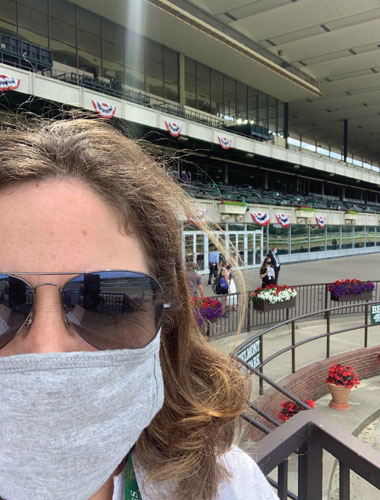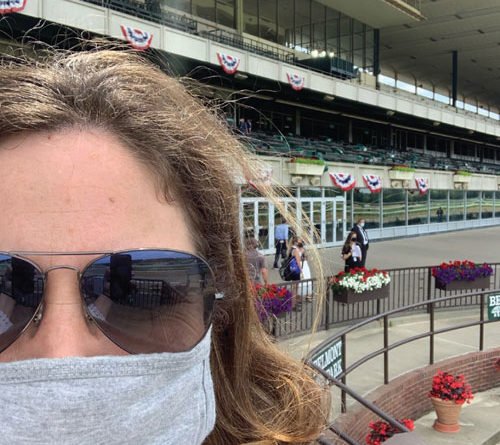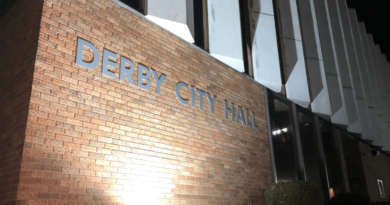Racetrack veterinarians keep running during COVID-19
Some racetracks around the U.S. closed because of the COVID-19 pandemic, but racetrack veterinarians haven’t stopped working.

Dr. Sara Langsam, a managing partner at TFB Equine serving Belmont Park and the Aqueduct Racetrack in the New York City area, said her day-to-day routine hasn’t changed much since April.
“Daily life didn’t change much for us once we got onto the grounds during the lockdown,” she said. “Horses were still training and getting their normal ailments.”
As racetracks begin to reopen, veterinarians will likely face continued safety modifications including no fans in the stands and less racing, which could cause potential financial struggles. Safety guidelines depend on the state.
Dr. Langsam said the closed community at the racetracks has been key to keeping people healthy.
“In the middle of March, they limited the number of people on the back side to essential only, so no press, no owners, etc.,” she said. “We started temperature checks to get onto the grounds and required masks soon after.”
Dr. Eric Kates, owner and managing partner of Colts Neck Equine in New Jersey, said his practice made some scheduling changes, including having the office staff go part time in March.
“We divided the office in half, so the staff was not exposed to the veterinarians or the road support staff,” Dr. Kates said. “We tried to keep them apart as much as possible.”
Veterinarians on the road were paired up with a veterinary technician so there was even less exposure.
“We took calculated risks,” Dr. Kates said. “I think our practice mimics the country as a whole: We are learning to live with it. It takes constant reminders to our staff and our clients that this is not over.”
But, Dr. Kates said, no matter the reminders, there is a risk.
“Every day you get exposed to someone, that breaks the circle of safety. It is difficult. There is some calculated risk every day,” he said. “I think being outside and at the barn is a huge element that allows us to not worry nearly as much.”
Dr. Kates said COVID-19 has been a major financial hit, many businesses will fold, and the whole purse structure has had to change.
“The majority of money comes from gambling, and without fans at the racetrack, the purse structure has diminished,” he said.
And with less money to win per race, there is the potential for horse owners to struggle financially, said Dr. Kates, who serves on the Racing Committee for the American Association of Equine Practitioners.
“There are people who will go bankrupt, who owe us money,” Dr. Kates said. “When a client suffers, the racetrack veterinarian is the first not to get paid. Long term, our bottom line will be affected. The virus will be here for a long time, and we are going to have to learn to live with it. We need to be responsible for our clients and staff. It is going to take vigilance.”




